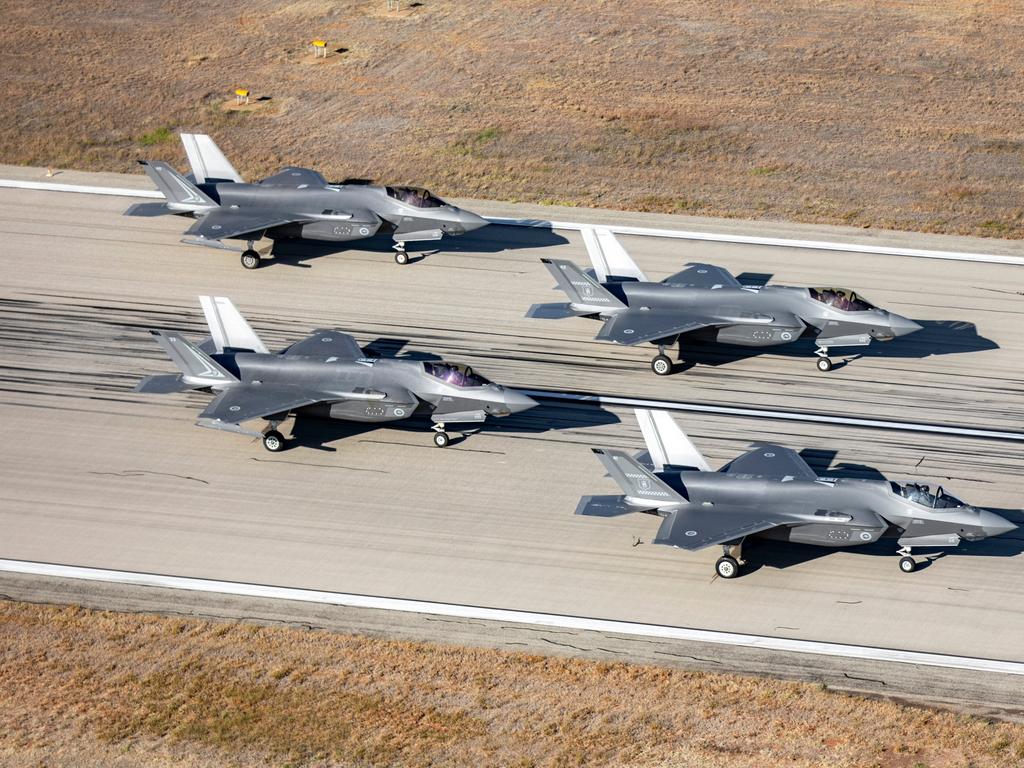Marles opens ADF ranks to greater diversity to appeal to Generation Z
Recruiting more women, LGBTI and ethnic minority personnel to the military is at the core of the Albanese government’s plan to expand the size of the Australian Defence Force numbers by nearly 20,000 to respond to growing strategic threats.

Recruiting more women, LGBTI and ethnic minority personnel to the military is at the core of the Albanese government’s plan to expand the size of the Australian Defence Force numbers by nearly 20,000 to respond to growing strategic threats.
Defence Minister Richard Marles said the ADF needed to be more “representative of the country” to appeal to Generation Z, and that greater recognition of diversity in the military would be key to hitting the target.
“I think what is really important is that the Defence Force needs to look like Australia,” Mr Marles told The Australian.
“Modern defence forces around the world reflect the country they are defending … and I think that idea is at the heart of meeting the recruitment and retention challenge.”
Labor backed the former government’s plan to recruit an extra 18,500 personnel to the ADF over the next two decades but until now has been quiet on how it intended to do so, given ADF recruitment has been static for years.
Mr Marles comments follow his move last week to overturn former defence minister Peter Dutton’s ban on so-called “rainbow morning teas” to support lesbian, gay, bisexual, transgender and intersex personnel.
Opposition MP and Afghanistan veteran Phil Thomson said the ADF needed “capability, not cupcakes”, saying the government was “fixated on Defence being a petri dish for social engineering and ‘inclusive’ events … Labor is clearly perplexed about the primary role of the ADF, which it obviously thinks is about pursuing a woke agenda that cares more about sexual orientation than ADF capability.”
Mr Marles said strengthening diversity in the ADF was key to expanding its war-fighting capabilities. “I actually think the restoring of the diversity morning teas matters,” he said.
“It is fundamentally core business, because it means that across the board of gender, ethnicity, sexual orientation, the works, we are drawing on the full scope of the Australian population to build our Defence Force.”
He said Defence would continue to seek out alpha males who dreamt of going into frontline combat roles, but it also needed to “appeal to everyone else”.
“You need to have a diverse, welcoming environment and a place where people can see they can build skills and build a career in the future,” Mr Marles said.
The Opposition Leader last year ordered Defence to abandon its “woke agenda” after it hosted morning teas marking the International Day Against Homophobia, Biphobia, Interphobia and Transphobia.

“I’ve been very clear to the chiefs that I will not tolerate discrimination, but we are not pursuing a woke agenda,” he said.
“Our task is to build up the morale in the ADF and these woke agendas don’t help.”
Chief of the Defence Force Angus Campbell and Defence Department secretary Greg Moriarty announced in an all-staff email on Tuesday that the Dutton ban had been overturned on Mr Marles’ orders, declaring diversity and inclusion were key to the ADF’s success. The recruitment challenge is significant for the ADF, which needs to attract a new generation of personnel to operate the advanced capabilities being acquired under its $270bn procurement plan.
Finding and training new submariners to crew the nation’s planned nuclear submarines will be an immense task in itself, with the submarine workforce needing to grow from about 800 to 2500.
Many will need highly technical skills and training at the US Nuclear Power School.
In the past, the navy has had to put ships on blocks because it hasn’t had enough crew.
As the Australian Strategic Policy Institute pointed out when the recruitment target was announced, the ADF has grown by only about 2000 personnel since the 2016 defence white paper, or fewer than 400 a year on average.
“It now has to sustain average annual growth of twice that for 20 years,” the ASPI said.






To join the conversation, please log in. Don't have an account? Register
Join the conversation, you are commenting as Logout